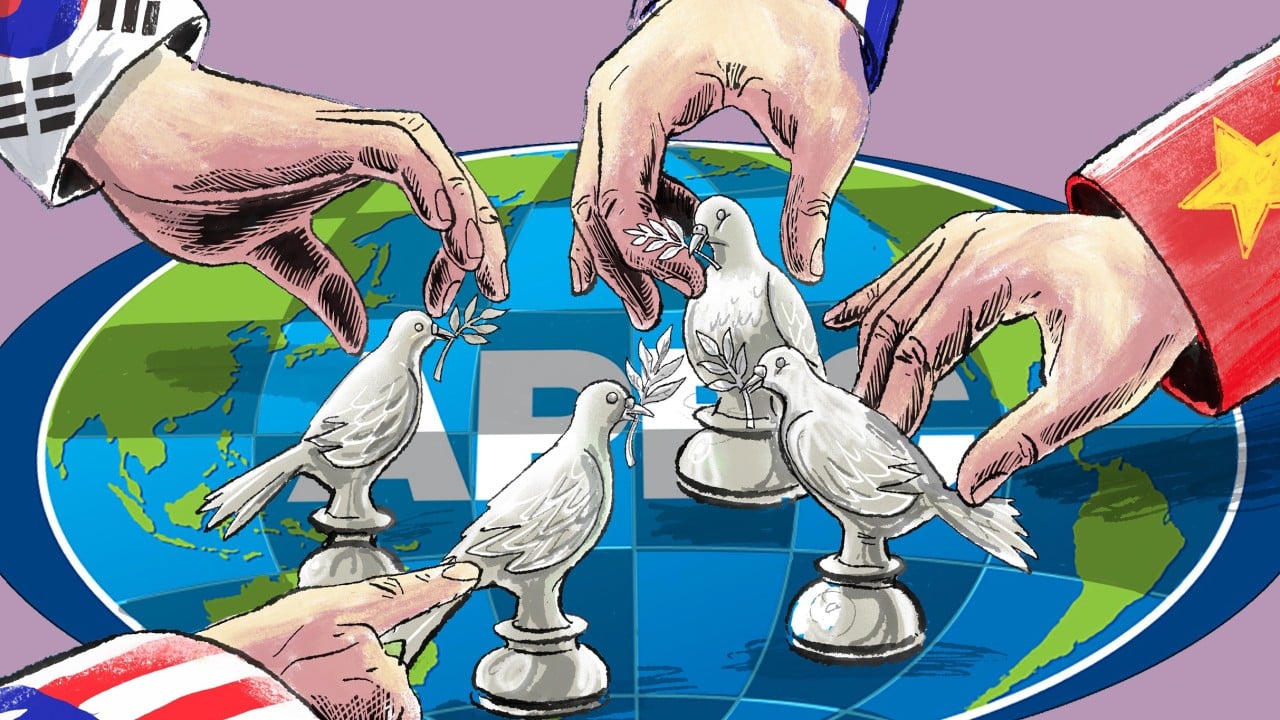The Apec Economic Leaders’ Meeting is just over a month away. Hosted in the ancient Korean capital of Gyeongju, the summit will bring together leaders from the 21 members of the Asia-Pacific Economic Cooperation forum. With both the US and Chinese presidents expected to attend, the gathering is poised to serve as a significant diplomatic stage against the backdrop of mounting tensions on the Korean peninsula and growing uncertainty in global affairs.
Advertisement
After North Korean leader Kim Jong-un’s appearance at China’s recent Victory Day military parade, signs have emerged of a potential China-Russia-North Korea alignment. Attention is turning to how this might influence the Apec meeting. Kim’s China visit could be both an attempt to break out of diplomatic isolation and a calculated step with the Apec meeting in mind.
The move recalls his earlier strategy whereby he met Chinese President Xi Jinping several times ahead of his summits with US President Donald Trump in 2018 and 2019. Given this precedent, the Apec gathering could open the door to a US-North Korea summit, or even a trilateral meeting involving South Korea.
Kim’s China visit should be seen as more than just ceremonial attendance; it is also a signal that North Korea is stepping onto the stage of multilateral diplomacy. Still, given Pyongyang’s limited autonomy and Beijing’s dominant influence, it would be prudent not to overstate it as a major diplomatic breakthrough.
The consecutive hosting of the Apec forum by South Korea this year and China next year offers both nations a practical opportunity to design a framework for regional cooperation. In this context, Xi’s visit would be a moment to maximise Beijing’s influence, not only in relations with Seoul but also on the broader diplomatic stage. Apec, with its non-binding nature, is an ideal venue to build consensus and encourage dialogue.
Advertisement
The US is also a crucial player in shaping outcomes. Trump’s presence could pave the way for not only a summit with China, but also with North Korea – and even a trilateral meeting with South Korea – all under the mediation of Beijing and Seoul. Ultimately, China’s ability to mediate is essential, and South Korea must actively assume the role of “pacemaker”, guiding the process from agenda-setting to execution.


.jpg?itok=SxHhtuFn)